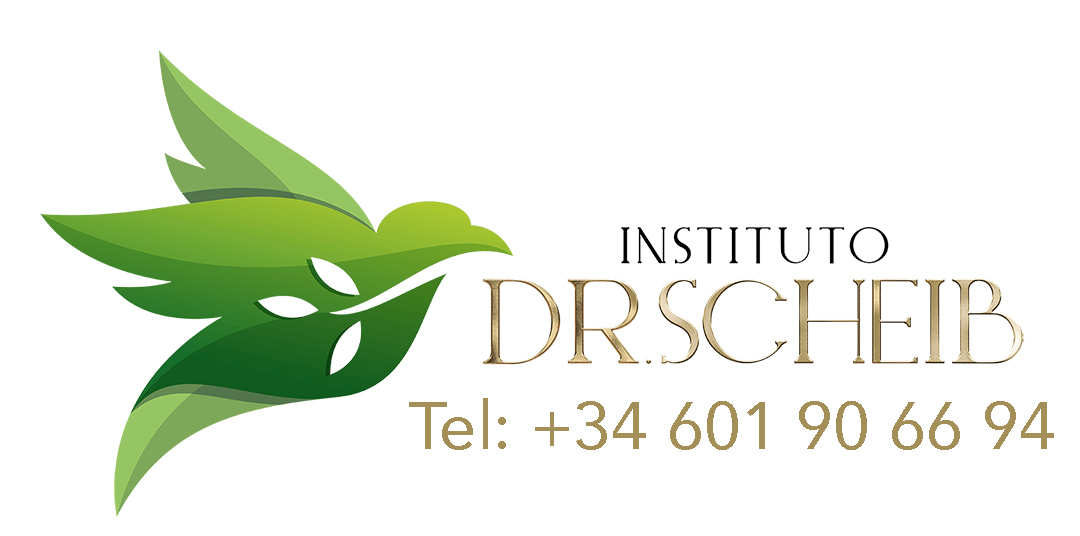Psychotherapy on Mallorca and in Sotogrande
Our team awaits you in our private clinic on Mallorca and our practice in Sotogrande, Andalusia We offer psychotherapy on Mallorca and in Andalusia, as well as psychosomatic treatments without long waiting times. Individualized one-to-one therapy, intensive short therapy, multimodal therapy concepts and lasting success after just two to three weeks. Our psychotherapy and psychosomatic treatments can be individually tailored: e.g. an inpatient stay in Sotogrande in Andalusia is possible. For example, an inpatient stay in combination with exclusive therapeutic treatment in the hotel is possible, completely anonymously and discreetly. Relaxed, Mediterranean atmosphere, with the use of sports therapy, relaxation methods and adventure programs. Follow-up treatment by your family doctor can be organized by us.
Psychotherapeutic treatment is different for every person, because every person is different and has different preferences, strengths and weaknesses. Everyone therefore needs tailor-made help in crisis situations and illnesses. There is no one effective psychotherapeutic treatment. Psychotherapy and the psychotherapist must be suited to the patient’s personality and problems. Our team therefore offers various psychotherapeutic treatments, which can be offered individually or in combination, depending on the patient.
If you are interested in psychotherapy in Mallorca or Andalusia, contact us now. We will get back to you personally as soon as possible to find the best possible therapy for you without obligation.
Various psychotherapeutic treatments in our clinic
Depth psychology-based psychotherapy (psychodynamic psychotherapy) The theoretical basis of depth psychological therapy is psychoanalysis and its further developments. One of the basic assumptions is that unconscious conflicts, which are rooted in the patient’s life history, later lead to effects on experience and behavior. Recognizing and becoming aware of these conflicts and dealing with them in the therapist-patient relationship leads to the disappearance or improvement of symptoms. The result is more inner freedom and joie de vivre.
Depth psychology-based psychotherapy is a so-called guideline procedure in the German psychotherapy guidelines. It is scientifically recognized and effective for many disorders.
This type of psychotherapy treatment usually takes place on an outpatient basis once or twice a week in a sitting position. We offer our patients one to two hours per day. The therapy can also take place during walks. Thoughts sometimes flow more freely. Greek schools of philosophy and monks in the Middle Ages already made use of this effect.
Cognitive behavioral therapy (KBT)
is one of the most widespread and best-studied forms of psychotherapy. It combines two therapeutic approaches: cognitive therapy and behavioral therapy. Which treatment method is used depends on the problem, illness or existing disorder. However, the basic assumption of the therapy is always the same: what we think, how we feel and how we behave are directly related. These factors have a decisive influence on our well-being. Cognitive behavioral therapy (CBT) is a problem-oriented strategy. It involves working on current problems and finding solutions to them. Cognitive behavioral therapy is used to treat depression, anxiety/compulsive disorders and addictions, among other things. It is also used for physical illnesses such as chronic pain, tinnitus and rheumatism. It helps people to cope better with their symptoms.
Classical behavioral therapy The term behavioral therapy does not stand for a uniform therapeutic approach, but for a group of different psychotherapeutic treatments. The underlying theory is that mental disorders are based on learned behavior and can therefore be unlearned. Behavioral therapy treatment methods influence the conditions associated with the mental disorder. These include environmental conditions, the behavior of other people, as well as the condition within the person themselves, for example their thoughts. For a person with an exaggerated fear of dogs, this means that the person concerned should seek contact with dogs under the close guidance / supervision of the therapist in order to be able to correct their learning experience “dogs are dangerous and must be avoided at all costs” through new experiences with dogs. Step by step, the affected person learns to move again without fear.
The combination of behavioral therapy with ketamine therapy in addiction treatment is new. As part of a combined approach, the addiction memory can be overwritten in certain cases(Ravi Das, 2019)
Treating anxiety using virtual reality Bei einer Psychotherapie Behandlung von Phobien und Zwängen hat sich seit langem eine verhaltenstherapeutische Konfrontationstherapie bewährt. Dazu geht der Therapeut gemeinsam mit dem Patienten in die Angst besetzte Situation, in der der Patient dann über Entspannungstechniken und bestimmte Übungen lernt, die Angst selbst zu reduzieren. Dieses Vorgehen ist wirksam, aber auch zeitlich sehr aufwendig. In letzter Zeit zeigte sich anhand mehrerer Studien, dass auch eine Angstbehandlung in virtueller Realität effizient ist. Dabei wird der Patient mittels einer VR-Brille und spezieller Programme mit den Ängsten in einer virtuellen Umgebung konfrontiert. Durch dieses Verfahrens können in gleicher Zeit deutlich mehr Konfrontationen vorgenommen werden als bei einem Expositionstraining in vivo, so dass die Therapie schneller und einfacher wird. Natürlich führen wir aber nach wie vor auch reale Expositionstrainings durch.

Use of VR glasses in the behavioral therapy of anxiety disorders
Motivational interviewing
Miller and Rollnick defined motivational interviewing as “a client-centered directive method for enhancing intrinsic motivation for change through the exploration and resolution of ambivalence” (2009, p. 47). It has strong roots in the client-centered therapy of Carl Rogers (1951, 1959).
This approach to therapy emphasizes the need to understand the client’s inner frame of reference and current concerns. The discrepancy between behavior and values is emphasized. In both motivational interviewing and client-centered therapy, the therapist creates the conditions for growth and change. The therapist conveys the basic attitude of appropriate empathic understanding (empathy) and unconditional positive regard in the conversation.
Psychotherapy treatment with the help of motivational interviewing is suitable for counseling alcohol, nicotine, medication and drug problems, risky behavior, including adolescents, and difficult decisions. In conjunction with the concept of freedom of choice (Luc Isebaert, 2009), it is one of the most effective methods in the brief therapy of addiction and harmful substance use.
EMDR trauma therapy
The EMDR therapy method (Eye Movement Desensitization and Reprocessing) is particularly suitable for treating the consequences of trauma. In post-traumatic stress disorder, the brain is overwhelmed by the processing of an overwhelming trauma in connection with its own helplessness. Feelings and memories are stored differently and subsequent processing of the experience is made more difficult. It is assumed that synchronization of the cerebral hemispheres through bilateral stimulation, e.g. eye movements, enables subsequent processing of the traumatic memory.
After a precise anamnesis and stabilization phase, the traumatic memories are freed from the discomfort through guided, rapid horizontal eye movements.
EMDR is considered evidence-based and is recommended by the WHO for the treatment of trauma disorders. The therapy method is now also used successfully for anxiety disorders and the treatment of alcohol and drug addiction.
Gestalt therapy
Gestalt therapy according to Fritz Perls belongs to the group of humanistic therapies. Gestalt is one of the most effective current approaches in modern psychology. If you want to give your life new impulses or as an efficient solution for clinical psychology disorders, Gestalt therapy is equally effective. The approach is always present-oriented and centered in the here and now. When we are in the present, future-related fears and feelings of guilt about the past disappear.
The therapeutic process seeks change. Each person has their own unique ways and solutions. The Gestalt therapist supports and guides the individual process so that solutions emerge.
Gestalt means taking responsibility and not blaming ourselves for what has happened to us. If we change, our environment will change with us. Instead of manipulating ourselves, we are focused on our own process.
In Gestalt, we know that an issue will keep coming up until we finally bring it to a conclusion, i.e. break the vicious cycle. When we recognize the pattern, specific situations are closed and will not return.
Gestalt therapy is an integrative therapy, the learning process is directly implied by the experience. Gestalt differs in the sense of conventional talk therapy, body language and other forms of expression are included.
Gestalt aims to make us aware of how we act and react in certain situations. Only with awareness are changes possible.
Hypnosis/Hypnotherapy
Medical hypnosis is a recognized psychotherapeutic method to effectively help solve problems, heal or alleviate disorders and (acute, chronic, psychosomatic and physical) illnesses. This psychotherapy treatment is order-oriented: The therapist identifies goals with the client, which are pursued in further counseling and achievement is checked at the end. A prerequisite for successful therapy – as with any other form of therapy – is the establishment of a trusting relationship for the pursuit of jointly set goals. In order to promote healing, searching and learning processes, hypnosis is either practiced in a more formal sense or everyday trance processes are used for therapeutic work. Hypnotherapy can also be practiced as self-hypnosis training or the learning of deep relaxation exercises.
In particular, hypnosis is also a method that can be used to influence chronic pain and side effects of medication, as well as diseases of the immune system. It is therefore playing an increasingly important role in pain therapy, oncology and palliative medicine.
Ketamine-assisted psychotherapy
The combination of hypnosis with ketamine infusions is new. The effects of both methods complement each other and often lead to faster and more sustainable results. Ketamine-assisted psychotherapy has been increasingly used in recent years for the treatment of severe depressive disorders, anxiety disorders and obsessive-compulsive disorders, as well as (complex) post-traumatic stress disorder (PTSD) and addiction. As ketamine promotes neuroplasticity, it is ideal for combining with other therapeutic procedures.
Ketamine-assisted psychotherapy uses the anesthetic ketamine in lower doses to induce an altered state of consciousness in a safe environment. This makes changes easier and more profound, or even possible in the first place.
Ketamine reduces depressive and anxious states, the stress tolerance window is larger and patients find it easier to open up, allowing them to experience themselves in a new and different way. The use of ketamine as part of psychotherapy leads to more compassion for oneself, more clarity and serenity. Ketamine-assisted psychotherapy integrates various psychotherapeutic methods to facilitate new experiences and integrate unprocessed memories.
Apparative procedures
In addition to traditional psychotherapy treatment, in recent years apparative methods have also been increasingly used in the treatment of mental and psychosomatic disorders. They are proving to be highly effective in the treatment of depression, compulsions, ADHD, pain and addiction. The equipment-based procedures that we use at the Dr. Scheib Clinic include biofeedback, neurofeedback, repetitive transcranial magnetic stimulation and transcranial direct current simulation. Here too, not every procedure is suitable for every person and the indication for one or other procedure is only made after a detailed diagnosis. We use the procedures as part of our overall psychosomatic concept.
Contact us - we are happy to help
If you have any questions or would like to make an appointment, please do not hesitate to write or call us.
Clinical secretariat in Mallorca:
Tel. +34 601 90 66 94
mallorca@psychosomatik.com







